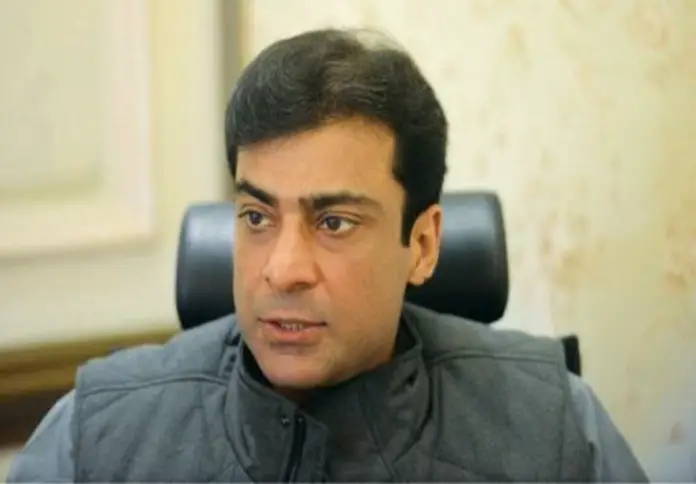The legal experts say that the Supreme court’s ruling on Article 63-A of the constitution has a huge impact on the election of Hamza Shehbaz as Punjab chief minister, saying that he has lost the majority to hold the office.
Some lawyers believe that the ruling has an immediate effect, and election of Hamza Shahbaz has become void while others are of the view that the opinion of three judges of the top court should be relied upon with caution in any pending proceedings before any court of law and other adjudicatory forums, for instance, Election Commission of Pakistan.
Majority of the lawyers termed the top court’s ruling a landmark judgment.
Talking to the Minute Mirror, Hamid Khan, a senior legal expert, said, “Election of Hamza Shahbaz is void now after the SC’s opinion.” He believes that the ruling has a huge impact on the Punjab government because the PTI’s dissidents cast their vote for Hamza Shahbaz at the time of election. “If the dissidents’ votes are no more valid then how could it be said that Hamza Shehbaz is still the Punjab chief minister,” said Hamid Khan. He said that Sardar Usman Buzdar is now legally authorized to look after the affairs of the province as interim Punjab CM until a fresh election is held for the same post.
Former Supreme Court Bar Association (SCBA) Secretary Aftab Bajwa says Hamza Shehbaz is no longer Punjab chief minister. He adopted a tough legal stance, saying that “calling Hamza Shahbaz Punjab CM will now be contempt of court”.
“The Supreme Court’s ruling becomes effective as soon as they are announced. He [Hamza] lost the status as soon as the top court announced its verdict,” he observed.
The opinion of three honourable judges without detailed reasons and interpretation of the constitution should be relied upon with caution in any pending proceedings before any court of Law and/or Other adjudicatory forums i.e Election Commission of Pakistan. However, Advocate Khurram Chughtai believes otherwise. He says there was no direction of the parliamentary party to the party leaders and the Supreme Court has linked it with the direction of the parliamentary party regarding vote to the candidates of the Punjab chief minister.
“So, I think this ruling of the top court has further strengthened the position of Hamza Shehbaz because there was no direction,” he added. He argues that the top court, in its ruling, held, “It is our view that the vote of any member (including a deemed member) of a parliamentary party in a house that is cast contrary to any direction issued by the latter in terms of Para (b) of clause (1) of Article 63-A cannot be counted and must be disregarded.”
Khurram believes that there was no direction of the parliamentary direction for votes; there was merely a letter written by Imran Khan, the party head, regarding vote to Chaudhary Parvez Elahi. “So the PTI leaders did not violate anything. They did not violate the parliamentary party’s direction, which actually did not exist. Therefore, in my view, there will be no adverse impact of this judgment on the election of Hamza Shahbaz as Punjab chief minister.”
Advocate Chughtai says, “The opinion of the three judges of Supreme Court regarding Article 63A [the vote that is cast contrary to any direction of the Parliamentary Party], may be distinguished from the opinion of nine Judges in Hisba Bill Case, as there are earlier judgments on Art. 63A by 7 & 17 Judges of the SC.” Advocate Sardar Akbar Dogar, the president of the Lahore High Court Bar Association, says there could be an election, if needed, and in his view, Hamza Shahbaz still has a majority of votes.
“I simply say Hamza still has the majority of votes and if elections are held he will be the winner. But I clearly cannot say anything because I did not read the verdict of the Supreme Court,” says Dogar.
Advocate Noshab A Khan, another senior lawyer, believes that defection by a legislator not only causes harm to a political party but is also a negation of Article 17 of the constitution (freedom of association), more so while interpreting Article 63-A of the constitution, which relates to defection.
“It amounts to a mala fide act against parliament,” he said.
Under such circumstances, the Supreme Court has rightly rendered its verdict. In this scenario PM Shehbaz Sharif and Punjab CM Hamza Shahbaz have lost the majority,” he said. The PML-N has already lost three out of 173 votes, while if President Arif Alvi summoned a session for a vote of confidence, then the prime minister would have 169 votes, Khan said.
Similarly, Hamza also has fewer votes than required. As a result of this decision, the governments of both – Shehbaz Sharif and Hamza Shahbaz – have come to an end, he adds.







